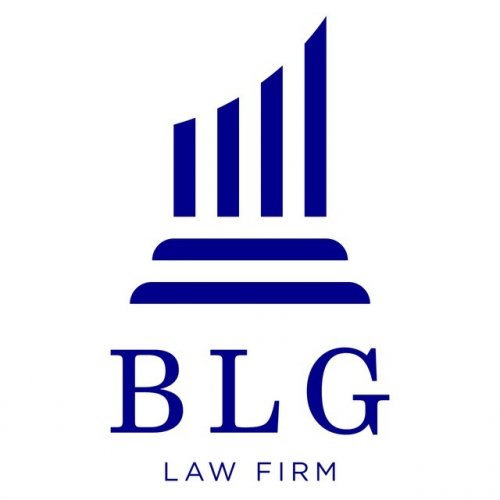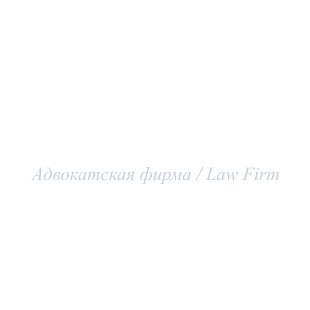Best Tax Lawyers in Uzbekistan
Share your needs with us, get contacted by law firms.
Free. Takes 2 min.
Or refine your search by selecting a city:
List of the best lawyers in Uzbekistan
About Tax Law in Uzbekistan
Tax law in Uzbekistan governs the imposition of taxes by the state on businesses and individuals. The fundamental legal framework includes income tax, value-added tax (VAT), social security contributions, and other specific levies. The tax system in Uzbekistan has undergone significant reforms to improve transparency, broaden the tax base, and create a more business-friendly environment. The State Tax Committee is primarily responsible for implementing tax laws and collecting taxes in Uzbekistan.
Why You May Need a Lawyer
There are several scenarios where it might be essential to consult with a tax lawyer in Uzbekistan. Situations include:
- Setting up a new business and ensuring compliance with tax obligations.
- Dealing with complex tax audits or investigations conducted by the tax authorities.
- Handling disputes regarding tax assessments or penalties.
- International taxation issues, especially if you have foreign income or investments.
- Seeking to optimize your tax liabilities through legal tax planning strategies.
- Understanding the implications of tax law changes on your business or personal finances.
- Filing appeals or representing you in tax litigation cases before the authorities.
Local Laws Overview
Several key aspects of local tax laws in Uzbekistan are relevant for individuals and businesses:
- Corporate Tax: The corporate tax rate generally stands at 15%, but it may vary for certain sectors or types of businesses.
- Personal Income Tax: Typically, a flat rate of 12% is applied to individual income earners in Uzbekistan.
- Value-Added Tax (VAT): The standard VAT rate is 15%, with exemptions or reduced rates for specific goods and services.
- Social Security Contributions: Employers and employees each contribute a percentage of wages to the unified social payment system.
- Double Taxation Agreements (DTAs): Uzbekistan has agreements in place to prevent double taxation with several countries, which can impact expatriates and international businesses.
- Tax Administration: The State Tax Committee oversees tax administration, focusing on digitalization and online tax reporting mechanisms.
Frequently Asked Questions
What is the current corporate tax rate in Uzbekistan?
The standard corporate tax rate in Uzbekistan is 15%, though it can vary depending on the specific sector.
How are individuals taxed in Uzbekistan?
Individuals are subject to a flat personal income tax rate of 12% on their income.
What kind of VAT is applicable in Uzbekistan?
Uzbekistan applies a standard VAT rate of 15% on most goods and services, with certain exemptions or lower rates available.
Can foreign business income be taxed in Uzbekistan?
Yes, foreign business income can be taxed, but it may be mitigated by double taxation agreements between Uzbekistan and other countries.
What does a tax lawyer in Uzbekistan do?
A tax lawyer provides guidance on compliance, disputes, tax planning, and represents clients in dealings with tax authorities.
How can I reduce my tax liability legally?
Legal strategies might include tax planning, utilizing allowable deductions, and optimizing business structures advised by a tax expert.
Are there any tax incentives for foreign investors?
Yes, Uzbekistan offers various tax incentives for foreign investors, such as tax holidays for certain priority sectors.
What happens if I don't pay my taxes on time?
Failure to timely pay taxes can lead to penalties, interest charges, and legal actions by tax authorities.
Is digital tax filing compulsory for businesses in Uzbekistan?
The Uzbek government encourages and increasingly mandates digital tax filing for businesses to improve efficiency and compliance.
Can tax assessments be contested in Uzbekistan?
Yes, tax assessments can be contested through an appeal process, potentially involving tax litigation.
Additional Resources
Here are some resources that can offer additional guidance on tax matters in Uzbekistan:
- State Tax Committee of Uzbekistan: The official authority for tax administration and policy.
- Ministry of Finance of Uzbekistan: Provides general financial legislation and regulatory updates.
- Local Chambers of Commerce: Often provide resources and advice, especially for business-related tax issues.
- Professional Associations: Organizations such as accounting and law associations may offer workshops and insights.
Next Steps
If you need legal assistance related to tax matters in Uzbekistan, consider the following steps:
- Identify the specific tax issue you are facing.
- Research and select a qualified tax lawyer with experience in Uzbek tax laws.
- Prepare relevant documentation and details of your tax situation.
- Arrange an initial consultation to discuss your concerns, understand the legal fees involved, and outline possible solutions.
- Follow through with the legal strategy developed to address your tax issues, keeping informed about any developments.
Lawzana helps you find the best lawyers and law firms in Uzbekistan through a curated and pre-screened list of qualified legal professionals. Our platform offers rankings and detailed profiles of attorneys and law firms, allowing you to compare based on practice areas, including Tax, experience, and client feedback.
Each profile includes a description of the firm's areas of practice, client reviews, team members and partners, year of establishment, spoken languages, office locations, contact information, social media presence, and any published articles or resources. Most firms on our platform speak English and are experienced in both local and international legal matters.
Get a quote from top-rated law firms in Uzbekistan — quickly, securely, and without unnecessary hassle.
Disclaimer:
The information provided on this page is for general informational purposes only and does not constitute legal advice. While we strive to ensure the accuracy and relevance of the content, legal information may change over time, and interpretations of the law can vary. You should always consult with a qualified legal professional for advice specific to your situation.
We disclaim all liability for actions taken or not taken based on the content of this page. If you believe any information is incorrect or outdated, please contact us, and we will review and update it where appropriate.
Browse tax law firms by city in Uzbekistan
Refine your search by selecting a city.

















